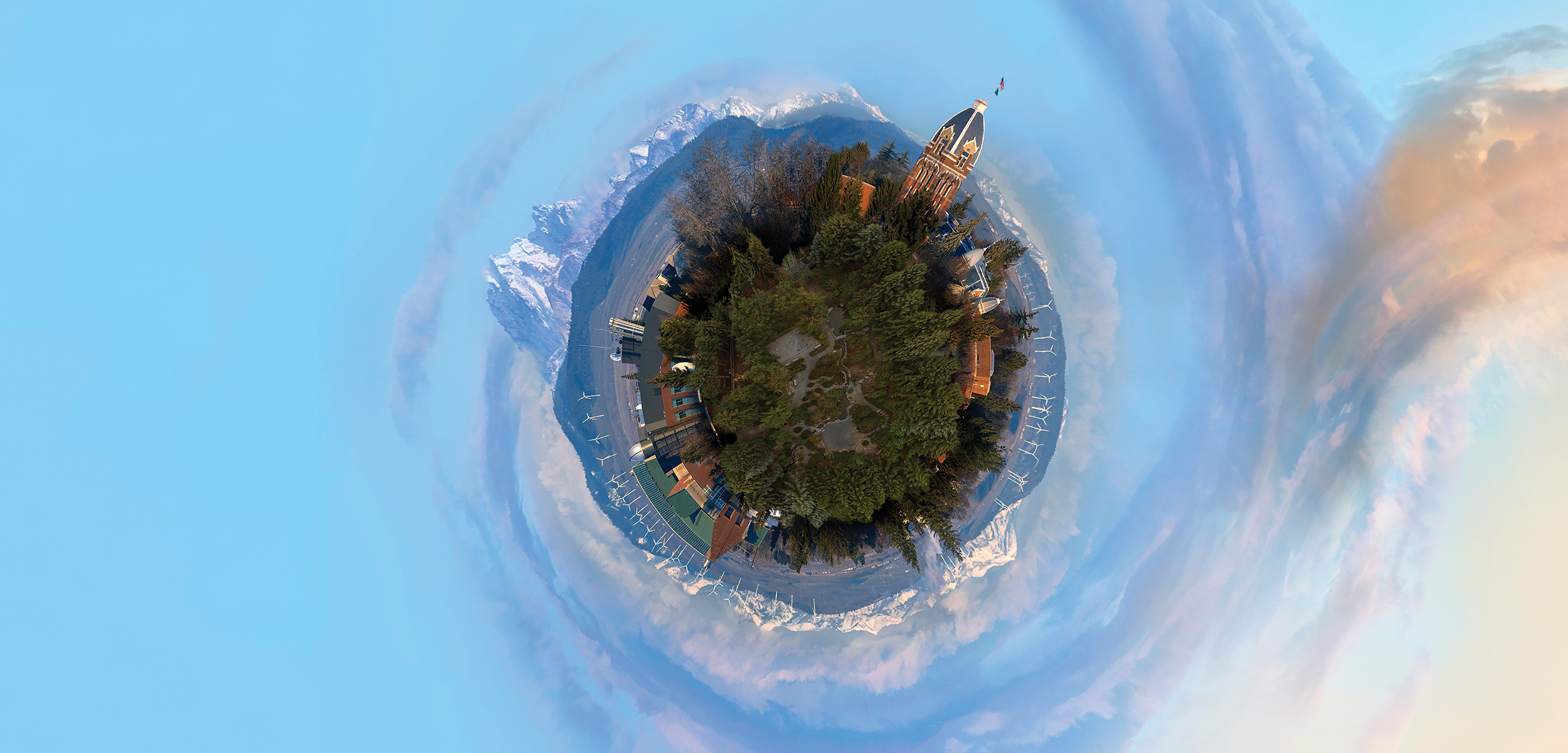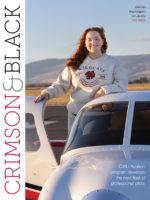
Many Americans don’t give much thought to the plastic straw sticking out of their latte cup after they toss it in the garbage. Or the single-use plastic bags that follow them home from the grocery store. Or the assortment of plastic utensils and condiment packets that inevitably wind up in the landfill.
In 2018, Americans generated 292.4 million tons of municipal solid waste, according to the U.S. Environmental Protection Agency. That’s 4.9 pounds per person per day. More than 35 million tons were plastic products—12.2% of the country’s generated municipal solid waste, according to the EPA.
These products live on in our rivers, streams, lakes, and oceans, polluting fish habitats, soil systems, and drinking water supplies. And even though humans have long known plastic waste is causing great harm to the environment, the EPA reports plastics in the United States have grown from 8.2% of solid waste generation in 1990 to 12.2% in 2018.
This waste generation is among the industrial activities our modern civilization depends on, which have raised atmospheric carbon dioxide and warmed our planet significantly over just the past 50 years. It’s no wonder scientists are sounding the alarm about Earth’s long-term well-being.
These behaviors are the definition of unsustainable, explains Susan Rivera, a senior lecturer in the Information Technology and Administrative Management (ITAM) department at Central.
“We have a linear economy where we mine raw materials, make things out of them, use them, and then throw them in the dump. And, as we are seeing now, there are a lot of problems with that,” said Rivera, one of a growing number of CWU faculty and staff members who have been working to identify and confront sustainability issues.
“In its most basic form, sustainability comes down to humans’ ability to meet our current needs without compromising the ability of future generations to meet their own.”
—
“The key is to change our ‘take, make, waste’ habits and move toward more of a circular economy,” she added. “We have to think about what we can do as consumers and professionals to divert some of that waste from the landfills and waterways. Better yet, designing and advocating for systems that repurpose waste as raw material for another process or system, the way a natural life cycle does.”
According to those spearheading sustainability initiatives on campus, people need to think about how to implement more sustainable practices into our daily routines.
“We live in a disposable society where convenience is key, but there are many ways we can be smarter about how we use the things we use every day,” said Clay Arango, an associate professor of biology whose research focuses on microplastic pollution in the Yakima River. He believes change is possible if more people develop a new mindset.
“In environmental studies, we always look at the life-cycle analysis—where did the resources come from to make a certain product and where will that product end up?” Arango said. “We’re trying to be more mindful about how we use the everyday, mundane things around us, and how they affect the entire life cycle.”
Rivera, Arango and their colleagues—who span disciplines from sociology to business to environmental studies—have been taking a more global approach to sustainability in recent years, treating the concept as more holistic than the traditional definition of protecting the environment. After all, the economic, social, and environmental pillars of sustainability are all intertwined.
“Sustainability encompasses so much, but our end goal with all of this should be to make our existence more harmonious,” said Carey Gazis, a geological sciences professor involved with Central’s sustainability initiatives for the past 15 years.
“We should want to save some endangered species and lessen our impact on the planet, but there are also economic and social aspects that we need to consider. For example, agriculture is a major part of our state’s economy, so we need to find ways to balance the economic side and the ag side. We also need to strike a healthy balance socially when it comes to things like health care, housing, and food supply.”
More Than the Environment
Social sustainability concerns tend to get overlooked because environmental issues often garner the lion’s share of public attention. But at CWU, social, environmental, and economic sustainability are on equal footing.
Sociology department chair Pam McMullin-Messier has been involved in the university’s sustainability movement since 2009, focusing her attention on the interconnections of social and environmental justice issues.
McMullin-Messier has come to realize how interrelated every facet of sustainability is in building for the future.
“We have to be willing to see things in a different way and think more broadly about what sustainability means in today’s world,” she said, adding that our nation needs to look at the holes in the safety net and address the issues we are failing to meet.
“Just in the past year, we have seen food insecurity, evictions, lack of education, lack of adequate health care, people not being able to find jobs—even a basic, sustainable internet structure,” she continued. “These are things most of us take for granted on a day-to-day basis, but … if you don’t have the basic hierarchy of needs being met for everyone, then you’re not a very sustainable society at all.”
She also pointed to the importance of recognizing gender equality, combating intimate partner violence, developing children’s nutrition programs, and creating safe community spaces as ways that communities can build a more sustainable future.
“We need to be talking more to people in the community and find out what it is that we can be providing,” McMullin-Messier said. “What are the partnerships they see as necessary, and how can we further those relationships and connections? There are so many disciplines that are deeply connected to sustainability, and we need to think more broadly about what we can do to help people in our communities.”
Awareness and accessibility are the primary obstacles for advocates to reach marginalized community members who stand to benefit from social services, such as food banks, rental assistance programs, and mental health counseling.
Aside from merely providing these services, McMullin-Messier believes it is vital to be more deliberate in communicating that they are, in fact, widely available.
“We have food banks in our community that some people don’t even know about, or they feel too ashamed to ask for help,” she said. “We have to figure out what the barriers are and how we can normalize services like food banks, rental assistance, and mental health counseling. These safety nets are here for everyone, and we have to look at why people aren’t using the available resources.”
The Sustainability Certificate program is one way the CWU faculty has been bridging that gap. By expanding the definition of “sustainability” across campus, Central has been able to attract students from a wide range of specialty areas who want to apply sustainability concepts to their career paths.
“Sustainability isn’t just for environmental science and business majors,” McMullin-Messier said. “There are so many other disciplines that are deeply connected to sustainability, and we are trying to help more students understand that these concepts can be applied much more broadly. We want our students to think bigger when it comes to sustainability, and the certificate program is making more people aware of what’s out there.”
Tying It All Together
In its most basic form, sustainability comes down to humans’ ability to meet our current needs without compromising the ability of future generations to meet their own.
Whether the focus is on environmental, social, or economic aspects, the CWU faculty and staff members driving the conversation on campus want to help their students and co-workers be more cognizant of the connection between the actions we take today and the impact those decisions have for tomorrow.
“There are a lot of people on campus who are really interested in making a difference, and CWU has made some pretty big strides with our stream restoration projects, revegetation projects, the campus garden, and more,” said Arango, the biology professor. “This generation of students really wants to make some waves, and we have seen that through enrollment growth in programs like environmental studies.”
Central has taken many forward-looking steps in recent years, such as hiring a full-time sustainability coordinator (Kathleen Klaniecki), introducing more green building practices, establishing the Wildcat Neighborhood Farm, and joining the Sustain-ability Tracking, Assessment and Rating System (STARS) program, a self-reporting framework for colleges and universities to measure their sustainability performance. Institutions can earn points toward ratings from reporter, to bronze, silver, gold, or platinum. CWU has a bronze rating.
Emerging data reveal young adults are more likely to act on and engage with climate change issues than the generations before them. According to an April 2021 survery by Pew Research Center, 37% of Gen Z’ers and 33% of millennials say addressing global climate change is a top concern to them personally. Gen X, baby boomers, and older adults are less likely to call climate change a top personal concern (27% and 29%, respectively).
The survey found 32% of Gen Z’ers and 28% of millennials have taken at least one of four actions (donating money, contacting an elected official, volunteering or attending a rally) to help address climate change in the last year, compared with 23% of Gen X and 21% of baby boomers and older adults.
Another notable change at CWU was the introduction of the sustainability certificate program that is open to students from all academic areas. The general education certificate, which launched in 2019, gives future professionals a chance to develop and lead experiential, service-learning projects focused on improving sustainability outcomes for the university and community partners.
Rivera, the ITAM lecturer, believes the program has already been a success. Students are discovering that sustainability, at its core, comes down to problem-solving and thinking about solutions they initially thought weren’t possible.
“We are showing our students that developing a sustainable mindset requires you to expand your thought process,” Rivera said. “We have a lot more students graduating today who understand what sustainability is, and now they can apply those principles to any field they go into.”
Likewise, Gazis, the geological sciences professor, has seen first-hand the value of the nascent Sustainability Pathway program. Most notably, the curriculum has helped tie everything together for students from divergent academic areas.
“Instead of just taking a bunch of unconnected content-area classes, now students are encouraged to take them all from one pathway so they can make those connections better,” Gazis said. “If nothing else, the sustainability pathway has helped more courses bring up the subject with their students. … I think we’re really heading in the right direction as a university.”
The progress made at CWU over the past two years is commendable, but there’s still a long way to go.
“We can’t rest on our laurels because there are always more changes we can make,” Arango said. “I would urge everyone not to be complacent because we can always do better. The more we think about how to solve these problems, the better off everyone is going to be.”






comments powered by Disqus